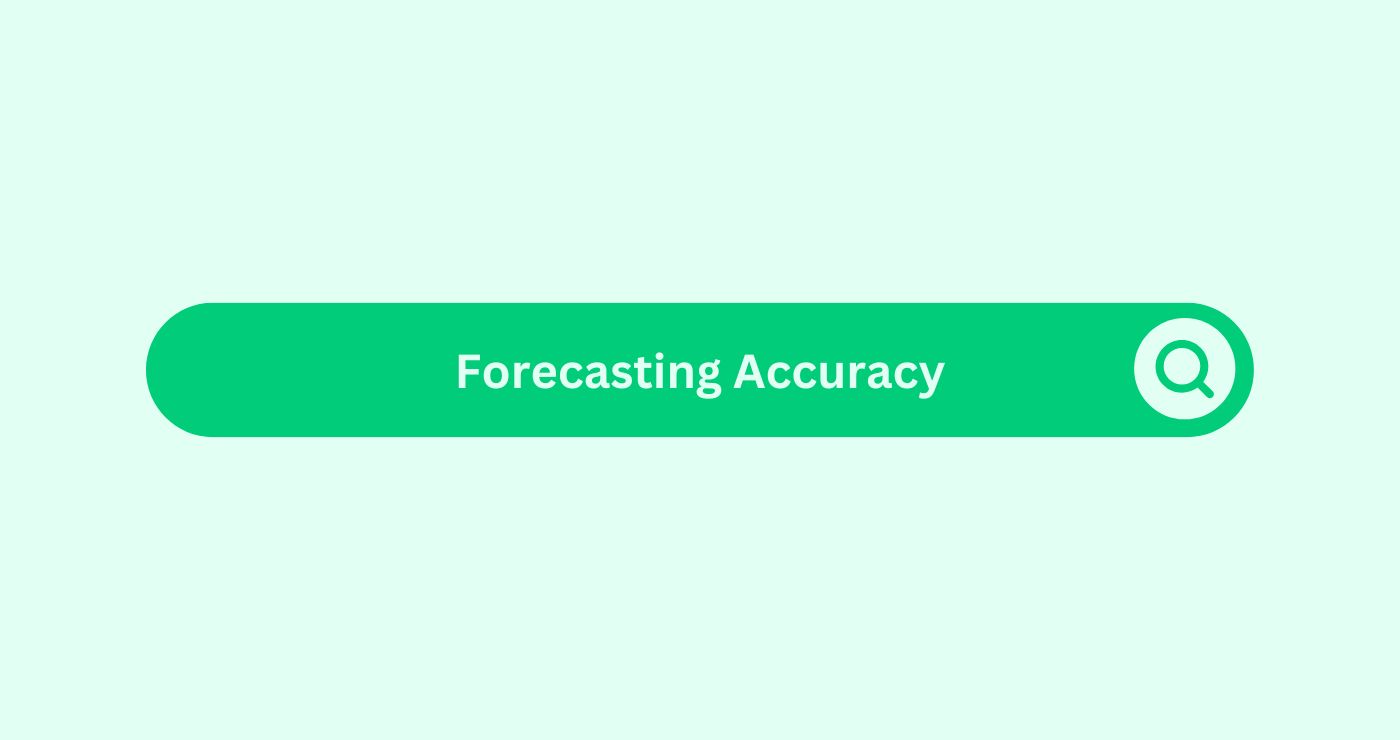Definition
Forecasting Accuracy measures how closely an AI model’s predictions match actual outcomes. It’s the gap—or lack of one—between what a system expects to happen (like trafficDefinition In the context of SEO (Search Engine Optimisation..., conversions, CTR, or keyword rankings) and what actually happens. In digital marketing, this metric determines whether predictive analyticsDefinition Predictive Analytics digs into stats, past data, ... are truly guiding decisions—or just guessing with polish.
For a performance marketing agency, forecasting accuracy is critical when allocating budgets or predicting ROASROAS is short for return on ad spend. App marketers use this.... If a model overestimates conversionDefinition In the realm of SEO, Conversion refers to the pro... rates, campaigns can overspend. If it underestimates, the brand misses growth opportunities. High forecasting accuracy gives teams the confidence to scale fast—without the “wait and see” risk.
An SEO company uses forecasting accuracy to shape long-term content strategyDefinition Content strategy involves planning, creating, pub.... By predicting which keywordsDefinition Keywords are crucial for SEO success as they conn... will grow in demand—or which pages are likely to drop—teams can update or create content before ranking shifts actually occur. The more accurate the forecast, the less reactive the strategy.
In a digital marketing agency in Auckland, where clients span retail, tourism, SaaS, and local services, forecasting accuracy means knowing which local campaigns will peak, which audiences are ready to convert, and what timing will maximise return, before spending a dollar. Accurate predictions fuel confident action.
Real-World Example
A digital marketing Auckland team uses AI to forecast trafficDefinition In the context of SEO (Search Engine Optimisation... surges before seasonal events. The system predicts a 35% rise in organic trafficDefinition In the context of SEO (Search Engine Optimisation... for a “NZ summer tours” blog. The team publishes three new linked guides early, earning position 2 on Google before competitors even update their pages. The prediction aligned within ±4% of actual trafficDefinition In the context of SEO (Search Engine Optimisation..., giving the team a measurable edge.
A digital marketing agency in Auckland manages seasonal tourism campaigns for a travel client offering guided adventure tours across New Zealand. Their AI-powered dashboard predicts a 35% increase in organic trafficDefinition In the context of SEO (Search Engine Optimisation... for the keyword cluster around “summer tours in NZ” and “best Auckland coastal hikes” based on past seasonal behaviour, weather trends, and Google TrendsDefinition What is Google Trends in Email Marketing? Google ... data.
Rather than waiting for trafficDefinition In the context of SEO (Search Engine Optimisation... to spike in December, the agency acts on the forecast in mid-October. They publish:
- A pillar blog titled “Ultimate Summer Adventure Guide for 2025”
- Three supporting cluster pages on topics like “Top 10 Hikes Near Auckland” and “Beach Camping Spots on North Island”
- A leadDefinition A Lead in the context of SEO refers to a potentia... magnet offering downloadable itineraries with real-time availability
To boost visibility, they also schedule a modest paid campaignDefinition An SEO campaign involves focused, Organised effor... on Google Ads targeting the exact keyword trend during the two predicted trafficDefinition In the context of SEO (Search Engine Optimisation... surge windows: late November and post-Boxing Day.
Within four weeks of publishing, the blog earns Position 2 on Google, driving 28.7% more organic clicks than the same campaignDefinition An SEO campaign involves focused, Organised effor... period the previous year. The AI model’s forecasted trafficDefinition In the context of SEO (Search Engine Optimisation... uplift—originally estimated at 35%—lands within 4.2% of the actual increase, validating the system’s precision.
This high forecasting accuracy didn’t just drive organic performance—it allowed the agency to confidently pre-load resources, align ad spend with search momentum, and offer their client a clear, data-backed ROI narrative.
Formulas & Calculations
| Metric | Formula | Purpose |
|---|---|---|
| Forecasting Accuracy | `1 – ( | Forecast – Actual |
| Mean Absolute Error (MAE) | `Σ | Actual – Forecast |
| MAPE (Mean Absolute Percentage Error) | `Σ ( | A – F |
Key Takeaways
- Forecasting accuracy measures how well AI predictions align with real outcomes.
- It’s essential for planning SEO content around trafficDefinition In the context of SEO (Search Engine Optimisation... trends and ranking changes.
- Performance marketers use it to prevent under- or over-investment in ad spend.
- High accuracy leads to faster, more confident decision-making in campaignDefinition An SEO campaign involves focused, Organised effor... planning.
- It separates effective AI systems from random statistical noise.
FAQs
How does forecasting accuracy help SEO companies improve strategy?
Forecasting accuracy lets SEO companies confidently plan around keyword trends and SERP changes—weeks before they happen.
Why is forecasting accuracy vital for a performance marketing agency?
Accurate forecasts prevent budgetDefinition SEO budget is the money allocated for marketing a... waste and ensure campaigns target audiences most likely to convert—right when they’re ready.
Can forecasting accuracy improve local campaigns for digital marketing Auckland teams?
Absolutely. High forecasting accuracy lets digital marketing Auckland teams time local promotions to match actual demand—not guesswork.
Is forecasting accuracy the same as CTR prediction accuracy?
Not quite. CTR prediction is one component—forecasting accuracy spans trafficDefinition In the context of SEO (Search Engine Optimisation..., conversions, bounce rateDefinition Bounce Rate in social media marketing refers to t..., revenue, and more.
What impacts the forecasting accuracy of an AI marketing model?
Data quality, historical consistency, seasonal volatility, and model tuning all impact forecasting accuracy in digital marketing applications.




